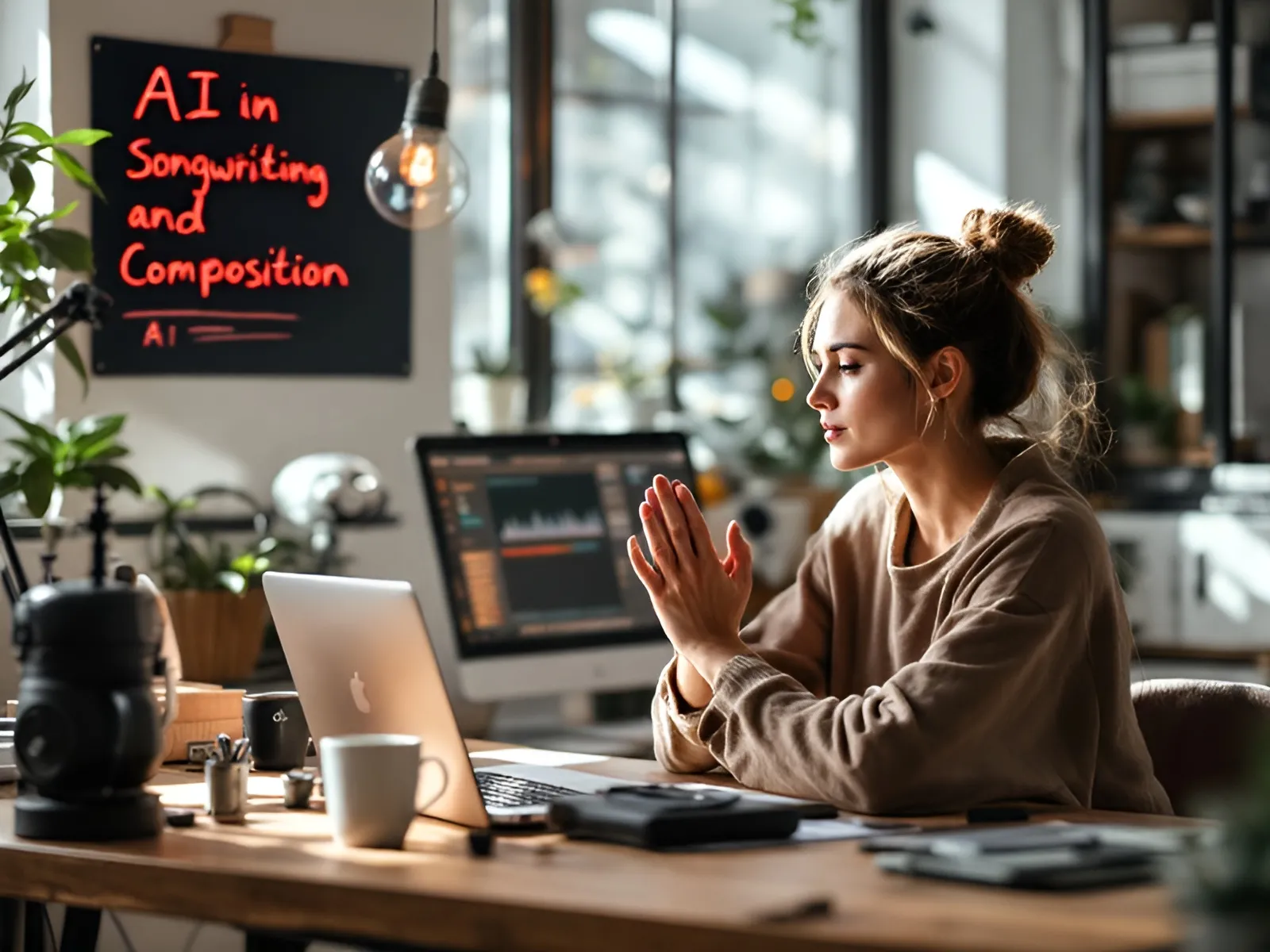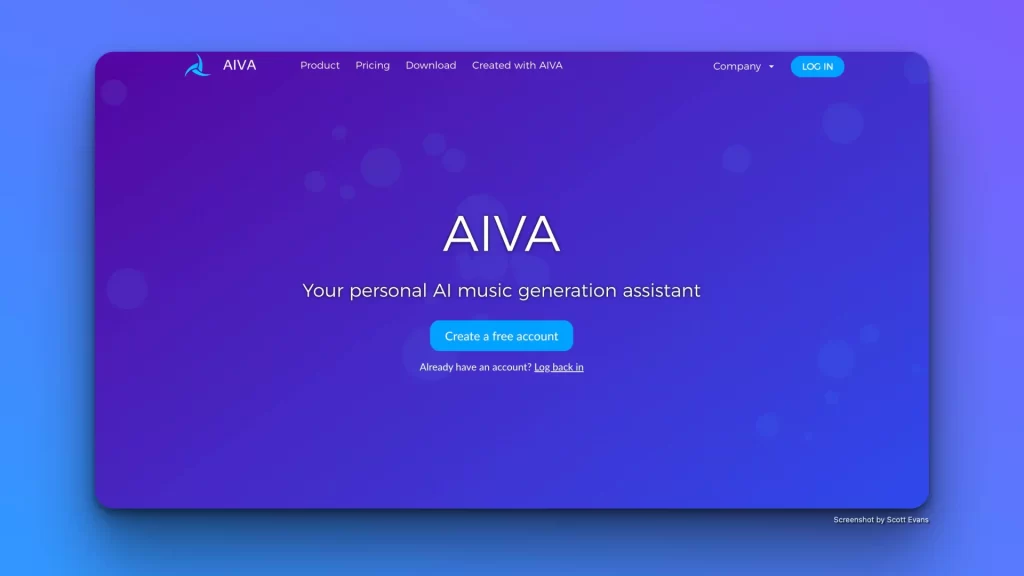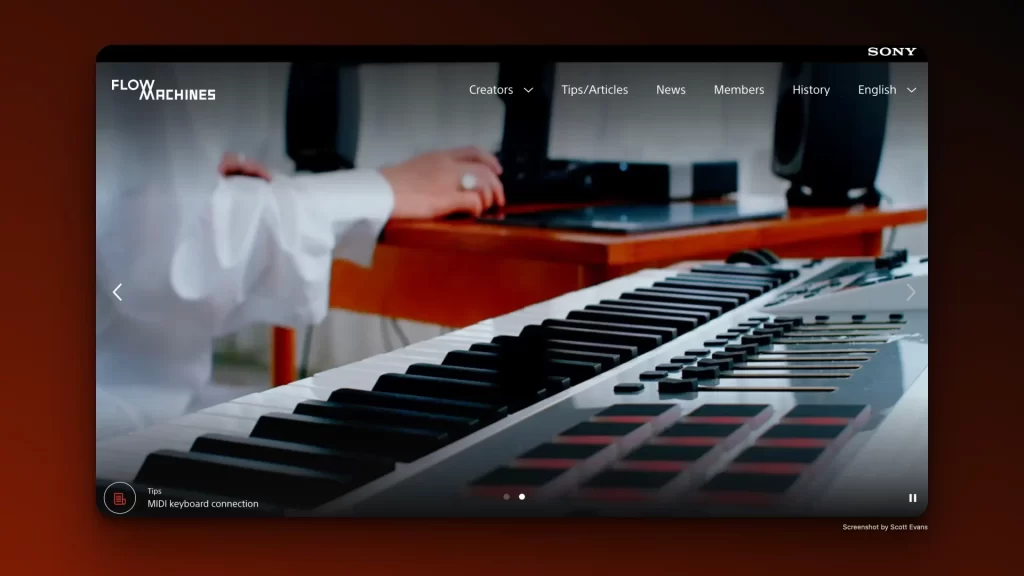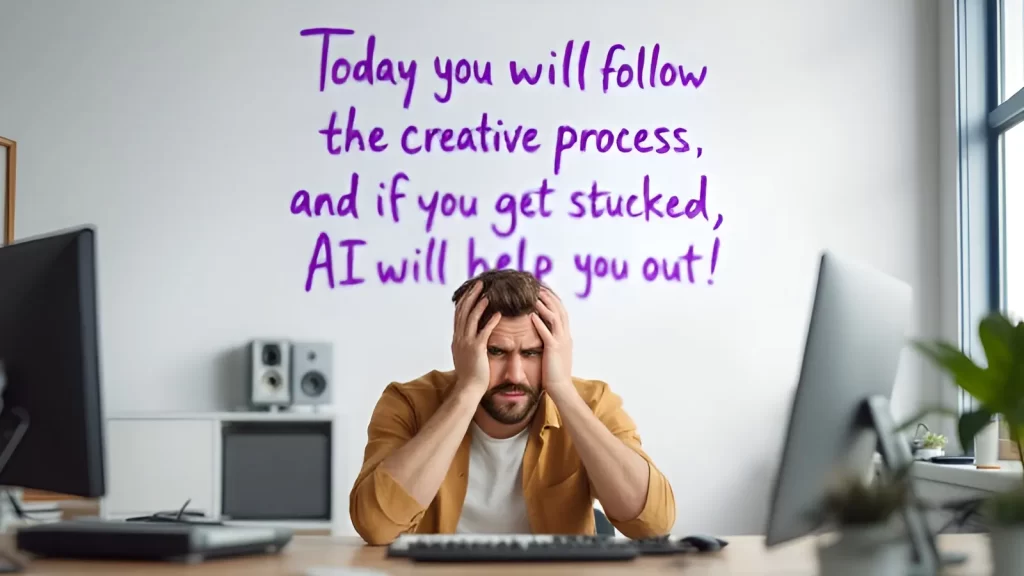How to Use AI in Songwriting & Composition in Just 5 Easy Steps

Artificial Intelligence (AI) in songwriting is changing the music industry, especially when it comes to writing songs and creating music. By analyzing large amounts of data, AI can generate lyrics, melodies, and even complete compositions that go beyond traditional creativity. Here are some key ways AI is making an impact:
- Enhanced creativity through AI-generated suggestions
- Efficient solutions for overcoming creative blocks
- Exploration of new musical territories without human limitations
In this blog, we’ll explore how to effectively use AI tools for songwriting and composition in just 5 easy steps. Get ready to integrate technology into your creative process, unlocking new potential in your musical journey.
Scott Evans DJ is supported by its readers. If you purchase through any link on the site, we may earn a commission. Learn more
Step 1: Understanding AI in Songwriting and Music Composition
Artificial Intelligence (AI) in songwriting refers to the use of algorithms and machine learning to assist in creating music. This technology leverages vast datasets, analyzing patterns from existing songs across genres, moods, and styles. By doing so, it generates compositions that can mimic or innovate upon human creativity.
Key aspects of AI’s role include:
- Data Analysis: AI systems process large volumes of musical data, learning from the intricacies of melody, harmony, and rhythm. This analysis enables them to create original pieces based on user-defined parameters.
- AI-Generated Music: While AI can produce technical soundtracks, questions arise regarding emotional depth. Critics argue that these compositions may lack the authentic human experience that infuses music with passion and soul.
The impact of artificial intelligence in songwriting is a topic of much debate. Concerns about authenticity are significant. The creative process traditionally involves personal expression and emotional connection. AI-generated music and AI in songwriting may excel in structure but can sometimes fall short in capturing the human experience of joy, struggle, and inspiration. Balancing technological advancements with the essence of artistry remains a crucial dialogue within the electronic music community, where AI in songwriting is increasingly discussed.
Step 2: Exploring Popular AI Songwriting Tools for Musicians
The rise of AI songwriting tools has transformed the creative landscape for musicians. Here are three leading platforms that have gained attention:
1. Amper Music
- Customizable Tracks: Amper allows users to create original music based on mood, style, and length.
- User-Friendly Interface: Designed for both novice and experienced songwriters, it simplifies the music creation process.
- Immediate Downloads: Users can export tracks instantly, aiding in efficient production workflows.
2. AIVA (Artificial Intelligence Virtual Artist)

- Symphonic Compositions: AIVA specializes in generating orchestral music tailored to user preferences.
- Learning from Masters: The AI analyzes compositions from renowned composers to produce high-quality pieces.
- Collaboration Options: Users can refine generated compositions, promoting a hybrid of AI and human creativity.
3. Flow Machines

- Diverse Genres: This tool can compose music across various styles, from pop to jazz.
- Interactive Creation: Flow Machines encourages collaboration by allowing users to input melodies or chords for AI enhancement.
- Instant Feedback: The platform provides real-time suggestions, fostering an engaging creative process.
These AI tools empower songwriters to explore new musical territories. In the ever-evolving landscape of the music industry, AI is becoming a pivotal force, offering unique features that can enhance the songwriting experience while keeping the creative spark alive. While some may wonder whether AI could replace songwriters in the future, it currently acts more as a collaborative partner. This advertisement highlights how AI’s role in music creation continues to grow, shaping the future of AI in the music industry.
Step 3: Using AI for Generating Lyrics and Melodies
Using AI for songwriting can completely change how you create music. Here are some effective ways to generate original lyrics and craft melodies with the help of AI.
Generating Original Lyrics
- Input Keywords: Give the AI-specific words or themes that are important to your song. Tools like AIVA or OpenAI’s GPT-4 are great at turning these inputs into engaging lyrics.
- Lyric Structure: Let the AI know what kind of structure you want, whether it’s verses, choruses, or bridges. This direction helps the AI produce lyrics that fit your preferred format.
- Lyrical Inspiration: Take inspiration from existing songs by sharing their themes or emotions with the AI. It can analyze these elements to create new content while keeping a similar vibe.
Creating Melodies and Chord Progressions
- Melody Generation: Use tools like Amper Music to generate melodies based on the parameters you set. By adjusting factors such as tempo, key, and mood, you can get a variety of melodic results.
- Chord Progressions: AI can suggest chord progressions that go well with your lyrics or melody. Platforms like Flow Machines offer chord templates that enhance your compositions without limiting your creativity.
By incorporating these methods into your songwriting routine, you’ll be able to tap into new sources of inspiration and easily explore musical styles you’ve never tried before, even as discussions around whether AI could replace songwriters continue to evolve.
Step 4: Integrating AI in Songwriting into Your Creative Process

Incorporating AI into your daily songwriting routine can enhance creativity and streamline the composition process. Embracing the collaboration between AI and humans opens up new avenues for musical exploration.
Daily Integration Strategies
- Routine Sessions: Dedicate specific times each week to use AI tools. This consistency fosters familiarity and encourages experimentation.
- Prompt-Based Creation: Use AI to generate prompts or themes. Input a few words or concepts, then let the tool inspire you with lyrics or melodies.
Practical Exercises
- Lyric Remixing: Take a set of lyrics you’ve written, input them into an AI tool, and ask it to rephrase or expand upon them. This can spark fresh ideas.
- Melody Variation: Compose a simple melody, then use an AI tool to suggest variations. Analyze how these alterations resonate with your original idea.
- Genre Exploration: Challenge yourself by generating compositions in genres outside your comfort zone using AI. Let the technology guide you through different styles.
These exercises not only enhance your writing but also stimulate creative thinking, allowing for a richer artistic journey.
Step 5: Navigating Challenges of Using AI in Songwriting
Working with AI in songwriting and music composition presents several challenges that songwriters need to address:
1. Creative Dependence
Relying too heavily on AI can stifle personal creativity. Writers may find themselves leaning on technology rather than cultivating their own unique sound.
2. Emotional Connection
AI-generated music often lacks the emotional depth that comes from human experience. Critics argue that this affects the authenticity of the compositions, making them feel less relatable to listeners.
Ethical Issues in Music Creation
The integration of AI in songwriting raises important ethical questions, particularly regarding:
- Copyright Ownership: Who owns the rights to music generated by AI? The ambiguity surrounding authorship can lead to potential disputes, especially when multiple parties contribute to the creation process.
- Artistic Expression: The debate continues about whether AI can truly express artistic intent. While AI tools can create technically proficient music, they do not possess the emotional insight that human artists bring to their work.
Addressing these challenges is essential for navigating the evolving landscape of AI in songwriting. Understanding these complexities empowers songwriters to use technology as an ally while maintaining their artistic integrity.
Is it okay to use AI to write a song?
Using AI to write a song is generally considered acceptable, but it comes with some considerations:
- Creativity aid: AI can be a valuable tool for inspiration, overcoming writer’s block, and exploring new musical ideas.
- Collaboration: Many artists view AI as a collaborative partner rather than a replacement for human creativity.
- Ethical concerns: There are ongoing debates about copyright, authorship, and the authenticity of AI-generated music.
- Personal touch: While AI can generate technical aspects of a song, many argue that human emotion and experience are crucial for creating truly meaningful music.
- Industry acceptance: The music industry is increasingly embracing AI tools, but there’s still a preference for human-created or human-curated content.
- Disclosure: If AI is used substantially in songwriting, it’s often considered ethical to disclose this to listeners.
Ultimately, using AI in songwriting is okay as long as it enhances rather than replaces human creativity and its use is transparent when appropriate. AI in songwriting can be a powerful tool, but the key is to find a balance that maintains artistic integrity while leveraging technological advancements. When implemented thoughtfully, AI in songwriting can open up new creative possibilities without compromising the human element that makes music so compelling.
Conclusion: Embracing AI’s Impact on the Songwriting and Music Industry
The integration of AI in songwriting offers exciting possibilities for artists. Here’s how you can leverage tools like Amper Music, AIVA, and Flow Machines:
- Amper Music: Create customizable tracks tailored to your vision.
- AIVA: Generate symphonic compositions that reflect user preferences.
- Flow Machines: Explore various styles and genres to inspire new sounds.
Embracing technology as a supportive ally enhances creativity rather than diminishes it. The benefits of using AI for songwriting include overcoming creative blocks and expanding musical horizons.
As the music landscape evolves, the future role of artists will shift towards collaboration with AI systems. This partnership redefines artistry, emphasizing innovation and shared creativity. The potential for AI Songwriting & Composition stands at the forefront, inviting musicians to explore uncharted territories while maintaining their unique human touch.
Common Questions on AI in Songwriting

DJ Scott Evans
Hey there! I’m Scott Evans, DJ and music tech enthusiast who’s gone all-in on AI music tools. After years behind the decks and geeking out over gear, I discovered how AI can unlock incredible creative possibilities for musicians like us. On this site, I break down complex AI music tech into easy-to-follow tutorials and honest reviews. Think of me as your friendly guide through the AI music revolution – no technical jargon, just practical tips to elevate your sound. Let’s explore what these digital tools can do for your creativity!
